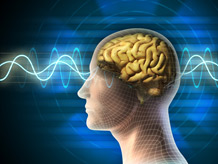
The Global Council on Brain Health will provide information and guidance that will enable people to understand what they themselves can do to help maintain and improve their mental fitness as they get older.
Exeter professor joins international experts on Global Council on Brain Health
Professor Linda Clare, Leader of the Centre for Research in Ageing and Cognitive Health (REACH) in Psychology at the University of Exeter, has been appointed to the Governance Committee of the Global Council on Brain Health (GCBH).
Launched to help empower people to maintain and improve their cognitive health, the Council will provide trusted information to lay audiences, policy makers and health providers on the actions people can take to support their brain health.
Professor Clare will join twelve other eminent experts from leading research institutions working in the fields of neuroscience and geriatrics.
Professor Clare said: “I am delighted to be part of this valuable initiative. The Global Council on Brain Health will provide information and guidance that will enable people to understand what they themselves can do to help maintain and improve their mental fitness as they get older.”
The initiative is led by AARP - a nonprofit, nonpartisan organisation that helps people of 50 and older improve the quality of their lives - together with Age UK. James Goodwin, Director of Research at Age UK, is an Honorary Professor at the University of Exeter Medical School. The Council will address the full range of factors that can impact brain health and examine key priority issue areas - such as physical exercise, mental engagement, stress levels, and medications and supplements.
“It’s clear that people want to know how to keep their brains active and healthy as they age, but they need a trusted source that can help them make sense of all the latest developments in brain health science,” said Sarah Lock, AARP Senior Vice President, Policy, Research and International Affairs. “The Global Council on Brain Health will help people understand what real-life approaches work best and empower them to live brain-healthy lifestyles.”
A new survey on brain health, released to coincide with the launch of the GCBH shows that nearly half of people are not supporting their brain health. Although virtually every adult aged 40 and over (98%) believes it is important to maintain or improve their brain health, only about half (56%) are doing one of the two most important activities to support their brain health - engaging in exercise and eating a healthy diet.
According to a 2011 study by the Mayo Clinic and a 2010 study published in the Nature Reviews Neuroscience Journal, engaging in aerobic exercise regularly and eating a healthy diet are the two most important activities to maintain and improve brain health.
For more information on GCBH, please visit: www.GlobalCouncilOnBrainHealth.org
Date: 27 October 2015
